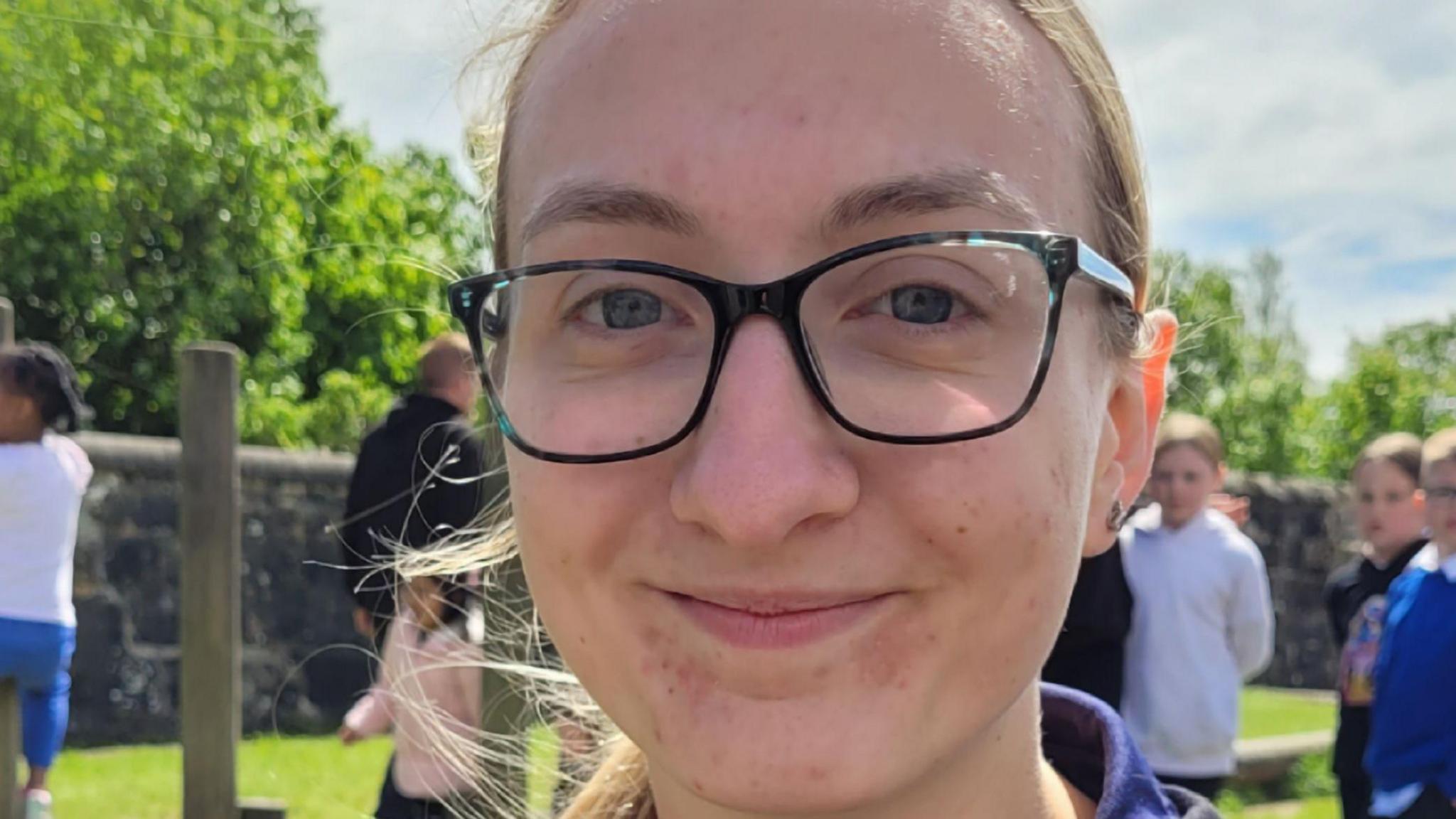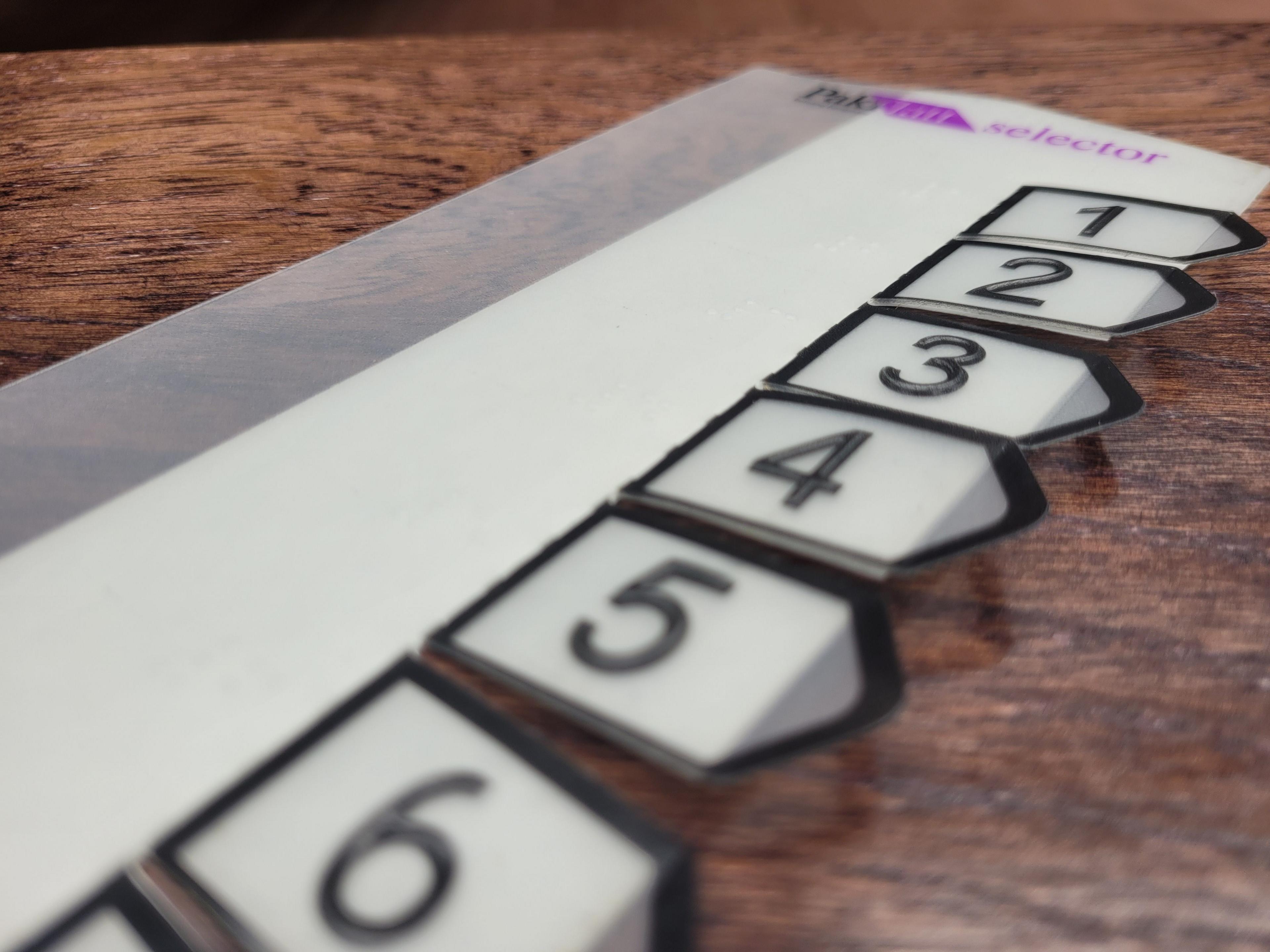Blind voters not confident their votes will be secret

Footballer Sam Gough, who is visually impaired, is worried about the process of placing her vote.
- Published
New recommendations for disabled voters from Electoral Commission in Edinburgh aim to ensure people are given the support they need to cast their vote.
Although there are simple ways to aid accessibility, some blind voters lack confidence that they will be able to use a polling station and keep their vote secret.
Sam Gough, 21, is a professional footballer, who captains an international blind football team as well as teaching her skills to school children.
This will be her first general election, but from previous experience she says that staff at polling stations need better training and better awareness of visual impairments, including the use of sighted people to act as guides.
“There needs to be a lot more work done to have a more accessible environment,” she said.

Sam Gough is a professional footballer who captains an international blind football team and also coaches youngsters
The act of voting for blind voters is helped by some simple gadgets.
The last time she voted, Sam was given what are called “tactile boxes” – a template with braille numerals, that sits over the polling card, lining up with the candidates’ names.
The names are read to the voter, who can lift the relevant numbered flap on the template, make their mark, and deposit their polling card.
For more than 20 years, blind and visually-impaired people have been able to vote using this template.
But the RNIB said a lack of staff training in its use could prevent a ballot being cast in secret, if the voter needs to be accompanied into the booth.
“The secret vote has been enshrined in law since 1872, but it hasn't really been the case that blind and partially sighted people feel confident to be able to go and vote in secret and confidence," said James Adams, from RNIB Scotland.
He said more technology needed to be made available to visually-impaired voters.
In the meantime, he wanted to remind people that the template is available to blind and partially sighted people when they do go and vote.

“Tactile boxes” – templates with braille numerals, sit over the polling card, lining up with the candidates’ names.
Aware of the issues, the Electoral Commission in Edinburgh published new recommendations to support blind people, external, and those with other disabilities when voting.
They include allowing anyone over 18 to assist a voter in a polling station, and a new duty for reasonable adjustments to be made for all disabled people.
The guidance sets minimum standards, including tactile voting devices, magnifying glasses, large print ballot papers, clear lighting in polling booths, and lower-level polling booths for wheelchair users.
Additionally, voters with specific needs can contact their returning officer to request reasonable adjustments.

James Adams from the RNIB said blind and partially sighted people needed to feel confident their votes were private
"It's really important that returning officers make sure that all of their staff are adequately trained to provide all this equipment in the polling station," said Sarah Mackie, Manager at Scotland’s Electoral Commission.
She added that the last major vote in Scotland, the 2021 Scottish Parliament elections, involved a lot of preparation and caution around Covid-19. The focus on infection control meant a drop-off in disability awareness, leading to more dissatisfaction among disabled voters.
But she was optimistic that enhanced training this time around would improve the experience for those voters.
Sam, meanwhile, insists visibility is crucial, and that being seen to vote is as important as the act itself for her.
“We shouldn’t just have to do a postal vote. Just because we have a disability doesn't mean we're not able to participate”.